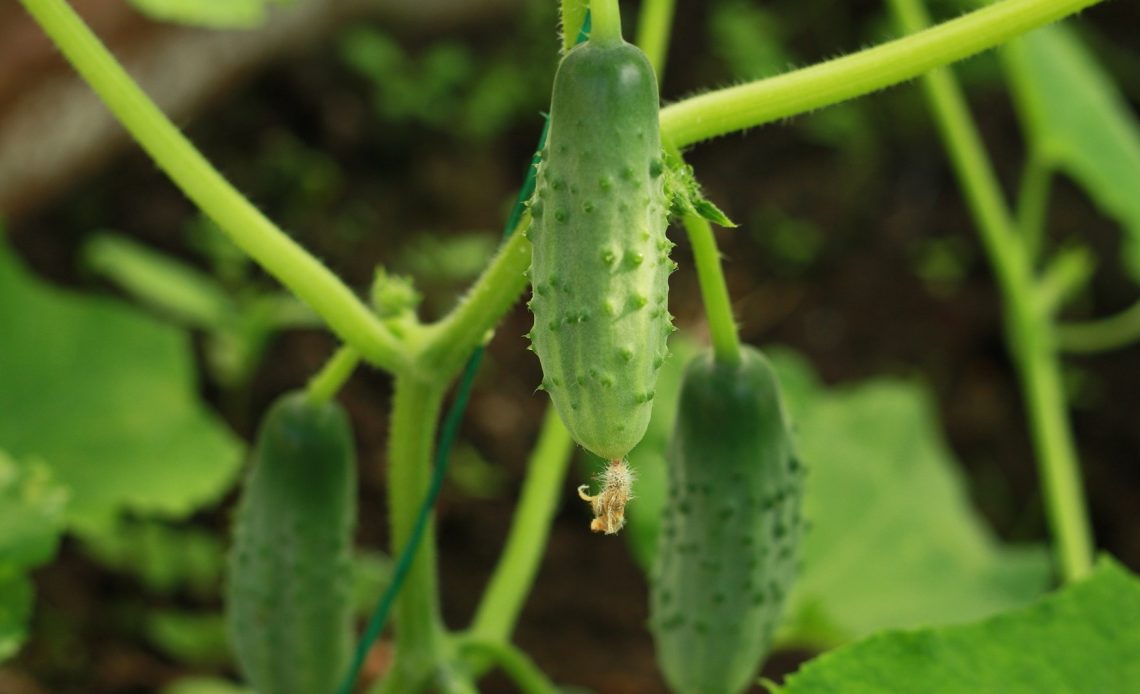

We’re here to help! Wild Yards is a completely free website that is 100% dedicated to helping you create a wildlife-friendly, sustainable yard. Read more
WildYards is reader-supported. When you buy a product through a link on our site, we may earn a comission. Every product is independently selected by our (obsessive) editors and our reviews are unbiased and objective. Read more about our mission or our privacy policy.
Cucumbers prove to be tasty for a whole host of animals – and if you grow your own, you may already know that it can be tricky to keep predators away from your crops. As you may know, deer are often the ones to blame for natural destruction and the eating of edible plants. But – do deer eat cucumbers?
Deer do not prefer to eat cucumbers or their plants. They will, of course, eat them if they are famished – however, for the most part, they tend to avoid them altogether. That said, protecting your cucumbers from the odd hungry deer and other animals is always wise, even if you want to welcome deer to your garden.
Why don’t deer eat cucumbers?
Deer don’t dislike cucumbers outright – but there are a few reasons why they may prefer other vegetables and plants in your garden. The main reason is that cucumber plants can often be quite prickly or grow thorns. Therefore, deer will come to avoid them out of fear of getting hurt.
You may find that fawn eat cucumbers occasionally as they are still learning which vegetables are the safest to scavenge for. However, deer will avoid cucumbers if there are better options available.
Deer will prefer duller tastes that hold few surprises. For example, deer tend to enjoy eating celery because it’s bland and doesn’t grow with any sharp thorns or off-putting fuzz. Cucumbers may taste mild to us when it’s ripe, but don’t forget that as they spoil, their taste can get very sharp – they eventually pickle, too! Oddly enough, there are actually a few reasons why cucumbers tend to get bitter on the tongue.
You’re more likely to find deer eating juicy berries and fruit and occasional weeds and mild, green plants than cucumbers. Deer love eating oranges, for example!
What other kinds of vegetables do deer eat?
Deer may not head for your cucumbers, but they will normally love munching on leafy green vegetables you may have growing in crops. They’ll normally make a beeline for lettuce and cabbage, for example, and spinach. However, it’s not unheard of for deer to enjoy eating turnips and broccoli.
It’s worth remembering that deer taste preferences can actually vary from area to area, and from season to season! Therefore, while most deer love bland vegetables and greenery, there are always likely to be a few that buck the trend (no pun intended!).
This is great news if you want to attract deer to your garden without bait, however, it’s less comforting if you have a large crop of any of the above vegetables. What’s more, there’s more than deer you’ll need to worry about when it comes to vegetable eating.
What wild animals eat cucumbers?
Rabbits and mole rats have been known to go after cucumber plants, especially if other food is scarce – however, the biggest culprits for cucumber munching are usually insects and common garden pests. They may not make much impact on their own, but if a group of bugs finds a tasty enough cucumber, your vegetables are at risk of getting spoiled very quickly.
Some of the most common garden pests that head for cucumbers are slugs, beetles, cabbage flies, moths, and even worms.
The better way to protect your cucumbers from insects, and the occasional rabbit and rat, is to start growing them in raised beds and keeping them covered. Check on them frequently, and avoid using any pesticides – chemical sprays could spoil your vegetables or even cause harm to other wildlife in your yard.
How do I keep deer from eating my cucumbers?
There’s usually not much need to worry about keeping deer away from cucumbers and their plants. The only reason why they’d do much damage to these crops is if they’re used to finding food they otherwise enjoy in your yard, and pickings are suddenly scarce.
The best way to deter deer from eating cucumbers, if you are concerned, is to consider setting up perimeters around your plants. Around eight inches of height will normally be enough to stop a deer from peering in. Again, covering any vegetables you want to protect is generally a good idea – netting and tubing tend to be effective options for helping vegetation to keep growing without pests eating them. Raised beds are ideal if you’re worried about smaller animals feasting on your pickles.
Otherwise, you may need to consider deterring deer from your garden completely. Consider using audio deterrents or infrared lights to scare away any potential visitors at night. You may also choose to spray a little natural deterrent around your trees, though effectiveness will vary depending on your brand.
Alternatively, simply try and keep your garden closed off. Growing your grass long may help, too – as contrary to popular belief, deer won’t eat grass unless they have to.
